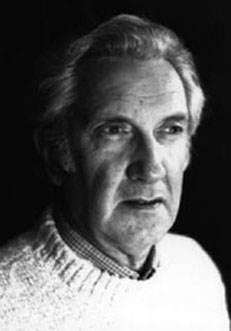|
||||
| LOTHAR KLEIN | ||
|
The poetics of different musical traditions interest LOTHAR KLEIN more than the novelties of contemporary techniques, although his style is thoroughly contemporary. All of Klein’s works, whether light or serious, attempt to find parallel points of reference between old and new music, and thereby comment on music’s historical continuity. He maintains an aesthetic distinction between a sacred and a secular manner in his music; his collage compositions, based on pre-existent older music, bridge differences of time and culture and offer a rich source for stylistic analysis. These works, in which labels like “conservative” and “avant-garde” lose their meaning, present an aural and intellectual fusion of styles, uniting past and present. Dr. Lothar Klein was born in Germany in 1932, raised in England, and educated in the United States. He received a diversified education, including studies in philosophy and literature, piano with Olga Samaroff-Stokowski, and culminating in 1961 with a Ph.D. degree in Musicology and Composition from the University of Minnesota, where his compositional efforts were encouraged by Dimitri Mitropoulos and Antal Dorati. As an undergraduate, Klein wrote music for many theatre and film productions, and in 1956 he won the Golden Reel Award of the American Academy of Film Sciences for the best university-produced film score. As a writer of words, Klein has published extensively on topics ranging from interpretations of historic music to that of rock music. He has written a yearly guest column for the MENC Journal and contributed to The Composer, the Canadian Forum, and the CBC. He is currently Professor of Composition at the University of Toronto, where he has also served as Chairman of Graduate Studies in Music. He has fulfilled many commissions from performing groups and theatre companies and his works have won Rockefeller New Music prizes (1965 and 1967), the Greenwood Choral Prize (1968), and a Floyd S. Chalmers Performing Arts Creation Award (1982). |
 |
|
Available from TENUTO PUBLICATIONS (Order from your favorite music retailer, or follow the link below to buy direct from Presser.) |
||
| 494-00414 |
SIX EXCHANGES for Saxophone ... $19.95 Recorded on Golden Crest Records by Paul Brodie (soprano sax) Audio Excerpt from Mvt. 1 Audio Excerpt from Mvt. 5 |
||
|
|
|||
